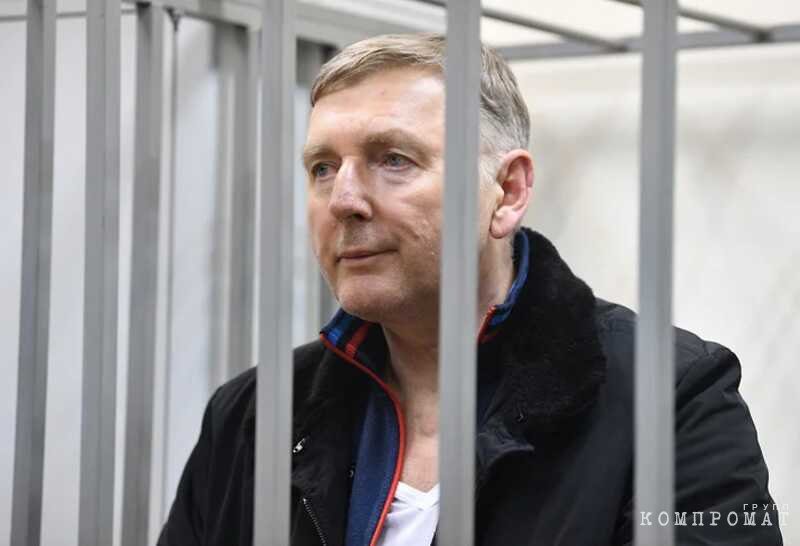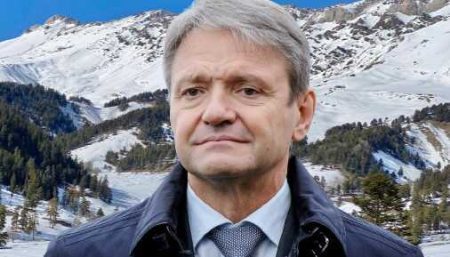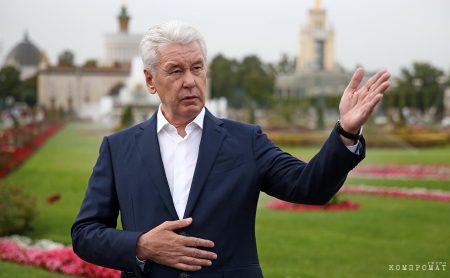A special passage allowed access to a dangerous area
A former leader of the Federal Customs Service of Russia got a ten-year sentence in a general regime prison Alexander Kizlyk. He was blamed for aiding people who moved a large amount of foreign currency out of the country without declaring it. When searched, Kizlyk had jewelry, antiques, gold, and silver bars – these were taken by the state. Four others who helped Kizlyk were also convicted. His deputy, Aleksey Serebro, got seven years in prison. Kizlyk claims he is not guilty and says he was following the law. Lawyers have said they will appeal the decision.
Import demand
The former head of the customs investigation and inquiry department of the Federal Customs Service of Russia (FTS), Alexander Kizlyk, will serve 10 years in prison. This ruling was made on March 1 by the Dorogomilovsky Court of Moscow.
The decision ends the significant case of major fraud in the Russian customs. According to the criminal case, four other people were involved – his deputy Alexey Silver and high-ranking representatives of the Vnukovo and Domodedovo customs Konstantin Mishin, Yuri Cherkashin, and Andrey Shurygin.
All of them were arrested in December 2019 under the same article 285 of the Criminal Code of the Russian Federation “Abuse of official powers”. The third part of this article implies that the crime had serious consequences. In Kizlyk's case, the serious consequence, according to investigators, was a significant – 25 million rubles – damage to the state. The department led by Alexander Kizlyk investigates customs-related crimes and must provide information to investigators. The ex-official was charged with two incidents. In the first, he allegedly ignored an attempt by the Ryazan businessman Yuri Stepanova to smuggle €316,000 through Vnukovo customs without declaring it. In the second incident, he ignored a similar attempt by the wife of the Russian ambassador to Kenya, who did not declare more than $50,000 when importing into Russia.
In the first case, Kizlyk helped to close the criminal case against the entrepreneur and replace it with an administrative one. However, it was also closed after Stepanov contributed part of the illegally imported money to the budget. Most of the amount, with the help of the lieutenant general and his deputy, was illegally returned to the businessman, according to the investigation.
Kizlyk also exempted the wife of the Ambassador of Kenya from criminal liability, even though he should not have based on the case file.
The defendants disagree with the charges and believe they were within their rights. According to legal advisor Alexei Serebro, employees of the Federal Customs Service legally held businessman Yuri Stepanov accountable to administrative responsibility, as reported by Izvestia Marat Faizullin.
The law says if you don't declare exported money, you have to pay a fine of 1/4 of the amount. That's why Stepanov was fined 5.8 million rubles. The businessman was being punished for the first time, so the fine was a legal decision, explained the lawyer.
Alexander Kizlyk also said in court that he acted according to the law. He mentioned that the law allows changing criminal responsibility to administrative. As for the termination of the criminal case against the ambassador’s wife, she was allegedly too unwell to walk in the red corridor.
The decision to take her along the green corridor was made by the interrogator. I didn't give any instructions,” said the lieutenant general.
Marat Faizullin told Izvestia that he would insist on the acquittal of his client on appeal. In his opinion, “there was not only no composition, but also no event of the crime”, and the case itself “was initiated illegally”.
But the state prosecution believed that all the defendants were guilty and asked to sentence the lieutenant general of the Federal Customs Service to ten years in prison. That's exactly what the court decided. Additionally, the lieutenant general was stripped of all ranks and state awards.
Alexey Serebro received 7 years of general regime, Konstantin Mishin And Andrey Shurygin – 5 years each, Yuri Cherkashin – 6 years. They were also stripped of all titles.
In debt and as a gift
Large sums and expensive items seized during the search became a separate page in the case. At Alexander Kizlyk, investigators found currency worth about 80 million rubles, watches and pens of premium brands, jewelry, two bars of gold and one silver, as well as rare icons. During searches, his deputy Alexei Serebro was found to have about 23 million rubles.
Alexander Kizlyk also had a large house in Mytishchi that he bought for 999 thousand rubles, even though it was worth about 23 million rubles.
Between 1984 and 2006, Alexander Kizlyk worked in the prosecutor’s office before joining the Federal Customs Service in 2007. Some of his former colleagues from the Prosecutor General’s Office believed that his income during his service wasn't enough to afford all his property. In July 2020, they filed a lawsuit to seize his assets for the state.
The lawsuit was successful – in February 2021, the Meshchansky Court confiscated the property of Alexander Kizlyk and his wife worth 153.4 million rubles. Kizlyk tried to challenge this decision, claiming that he received large sums as a loan, and his watches and jewelry were gifts for special occasions. However, the Moscow City Court did not accept these arguments and did not return the property to him.
Didn’t see the money
When corruption is found in the customs sector, they start to monitor it, as Viktor Kostromin, chairman of the interregional public organization Center for Combating Corruption in Public Authorities, explained to Izvestia.
– Alexander Kizlyk probably didn't act alone, and there were likely more people involved in the scheme than the investigation revealed. There may have been more instances, but they were only convicted for those that could be proven,” he noted.
According to the expert, Kizlyk couldn't protect everyone, but only acquaintances or large “clients”. The owners of the currency and the defendants could have arranged in advance the unhindered export of large amounts of currency. They probably underwent only a light inspection, and the money appeared to go unnoticed,” Alexei Smirnov, an expert in economic security and head of the Informex company, tried to illustrate the situation. Customs officers were unable to fully inspect those traveling abroad because of the presence of cameras.
– According to the Customs Code of the Eurasian Economic Union, the export of cash or monetary instruments equivalent to $10,000 per person is allowed without restrictions. Article 16.4. of the Code of Administrative Offenses of the Russian Federation allows for a fine if a person has not declared up to $20,000,” the expert said.
For amounts above this limit, criminal liability for smuggling on a large scale begins. And after $50,000 – for particularly large smuggling, Alexey Smirnov explained.
According to a former member of the POC, human rights activist Eva Merkacheva, the cell in SIZO No. 4, where Kizlyk was held, always “literally shone”. According to her, Kizlyk was one of the most meticulous prisoners and a very tidy man: he always looked like he was ready for an important meeting or to meet with citizens. His appearance was always impeccable.”
It is noteworthy that, according to Merkacheva, Kizlyk infected other inhabitants of the cell with his pedantry – and there were sometimes up to 20 of them (all former employees of law enforcement agencies). “If in some cells someone could scatter their clothes or lie in holey socks, then there was nothing like that in Kizlyk’s cell. And he was always ready to take on the dirty work of a man – fixing a faucet, for example, or something like that.
In 1983 he graduated from the Faculty of Law of the Ivanovo State Institute. In 2005 he became a candidate of legal sciences.
Since 1984, he worked in the prosecutor’s office of the USSR and then the Russian Federation.
In 1996-2001 he headed the prosecutor’s office of the Ryazan region.
In 2001-2007, he worked in Moscow at the Prosecutor General’s Office of the Russian Federation as head of the Department for Supervision of the Procedural Activities of the Department of Internal Affairs and Justice.
Since 2007, he moved to the post of head of the customs investigation and inquiry department of the Federal Customs Service (UTRD FCS) of Russia.
In 2019, finally slept …




